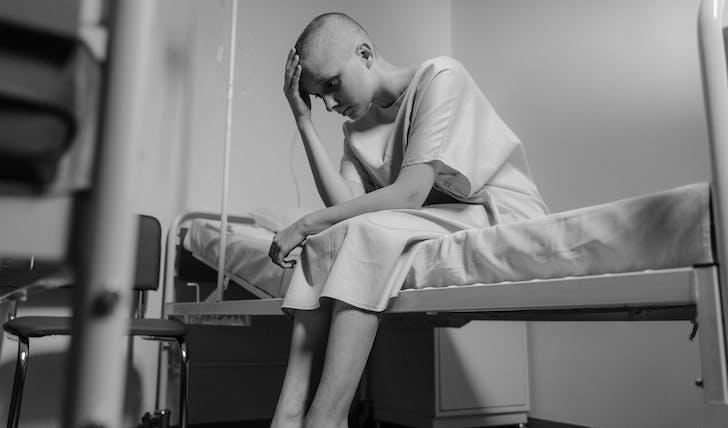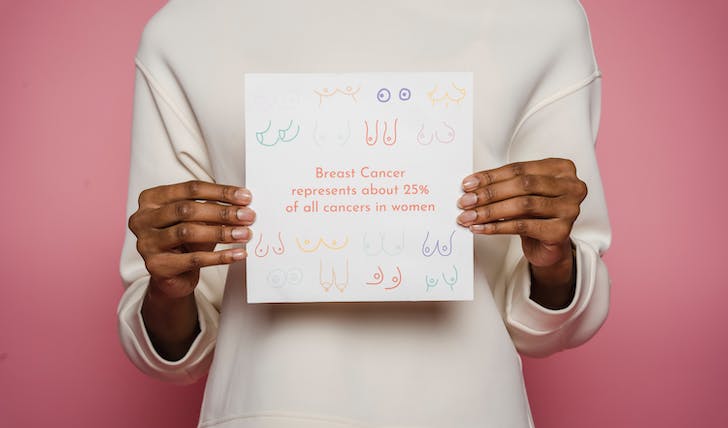Cancer is a disease that knows no boundaries of race, ethnicity, or socioeconomic status. It has a disparate impact on African Americans. Despite significant strides in cancer research and treatment, people of color in America continue to face higher mortality rates, less access to care, and a poorer quality of life when diagnosed with cancer.
However, this gap in cancer care is more than a health issue. It is a clarion call for equity and justice in a healthcare system that has historically underserved minority communities.

Tima / Pexels / Despite the ‘disparities’ African Americans face, there is a ray of hope that the U.S. will soon be bridging the divide.
Disparities in Cancer Outcomes Is a Stark Reality
African Americans are disproportionately affected by cancer. The statistics are stark and unsettling. For nearly every type of cancer, survival rates for African-American people are lower than for their white counterparts. These men are 2 to 4 times more likely to die from prostate cancer, while their women face a 40 percent higher risk of death from breast cancer.
So, these numbers are not just statistics. They represent lives, families, and communities deeply impacted by this disparity.
Several factors contribute to the cancer care gap faced by African Americans. These include socioeconomic disparities, limited access to quality healthcare, biases in the medical system, and a lack of representation in clinical trials.

Klaus / Pexels / In America, people of color are 2 to 4 times more likely to die from prostate cancer. And these women face a 40% higher risk of death from breast cancer.
Additionally, cultural factors and a historical mistrust of the medical system also play a role in delayed diagnoses and treatment.
Efforts to Improve Access and Outcomes
Hope is on the horizon as various stakeholders come together to address these inequities. As it stands, community leaders, activists, advocates, researchers, patients, and clinicians are tirelessly working to eliminate barriers to care.
Thus, from increasing awareness and education in African-American communities to advocating for policy changes that ensure equitable access to the latest treatments and technologies, these efforts are vital in closing the cancer care gap.
The Role of Screening and Early Detection
Early detection and screening are critical in improving cancer outcomes. Unfortunately, African Americans often face barriers to these lifesaving measures. Initiatives focused on increasing access to screening and educating about the importance of early detection are crucial. Similarly, community-based programs and partnerships with local healthcare providers can also play a significant role in overcoming these challenges.

Ivan / Pexels / As cancer treatment evolves, it is essential that these advances benefit all, irrespective of race.
This includes access to the latest medications, participation in clinical trials, and personalized medicine approaches. So, efforts to increase the representation of African Americans in clinical trials and research are crucial in ensuring that treatment advancements are effective and safe for everyone.
Advocacy plays a pivotal role in closing the cancer care gap. Activists and community leaders are essential in raising awareness. Thus, shaping policy and ensuring that the needs of African Americans are represented at every level of decision-making. These voices bring attention to the disparities and demand action to address them.
The Way Foward
Navigating the healthcare system can be daunting, especially when facing a cancer diagnosis. Empowering African-American patients and their families with the right tools and knowledge is vital. This includes education on their rights as patients, understanding treatment options, and accessing support services. Community-based support groups and patient navigators can be invaluable in this journey.
While there is much work to be done, the future holds promise. By continuing to focus on research, advocacy, and community engagement, we can envision a future where race does not determine cancer outcomes. Thus, this future is not just a dream but a goal that can be achieved with concerted effort and commitment.







